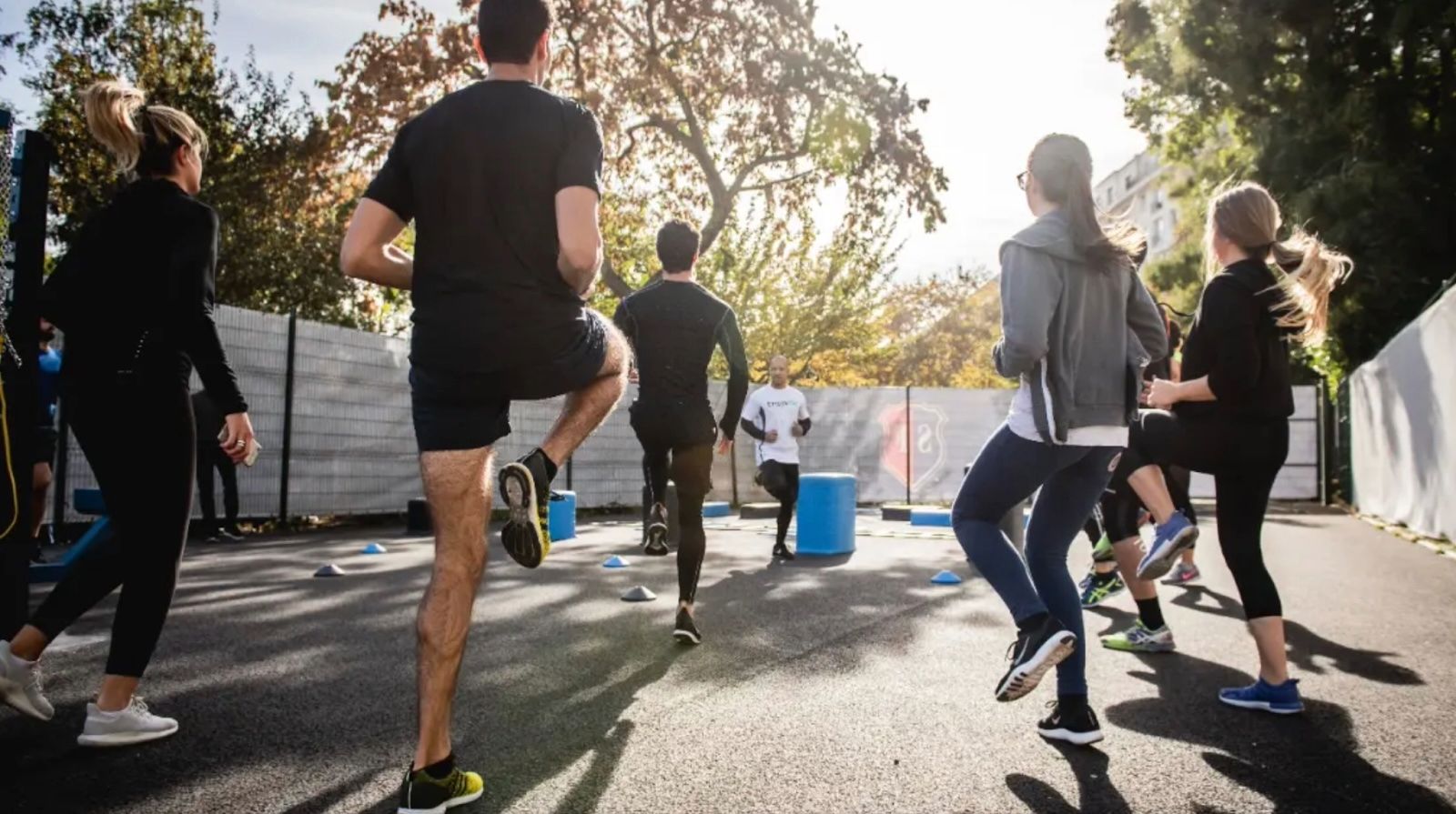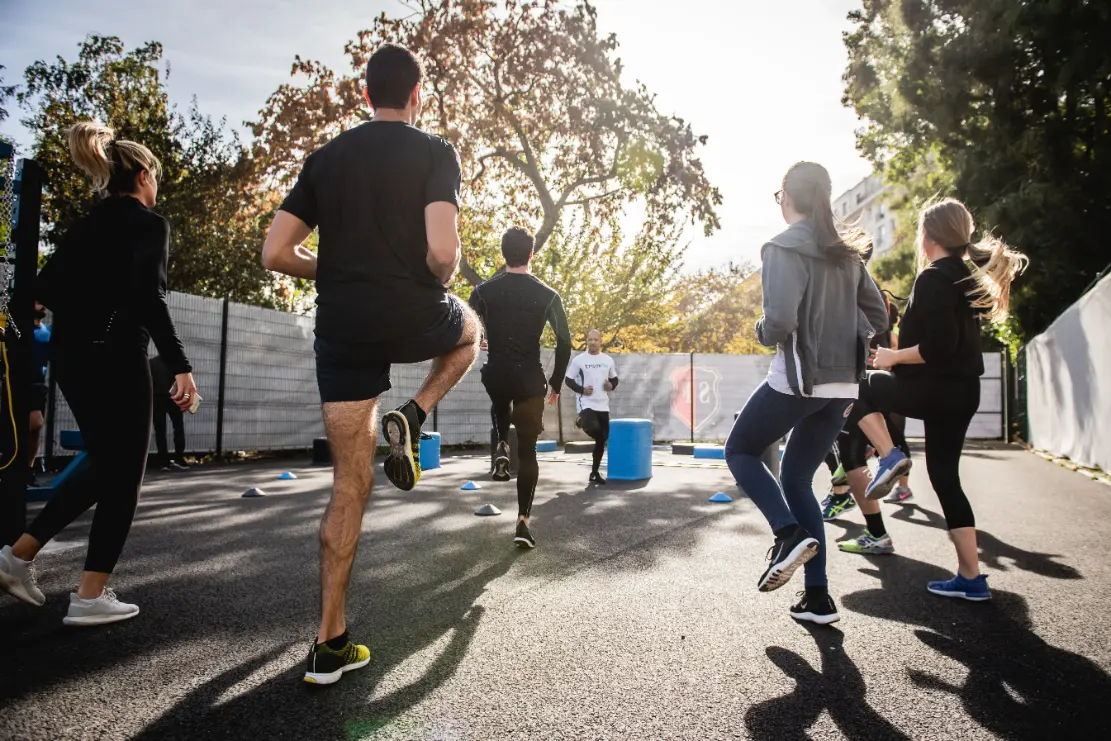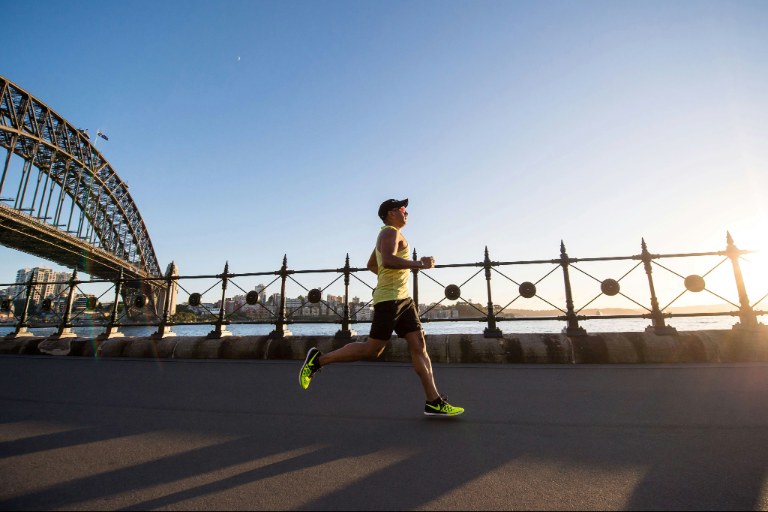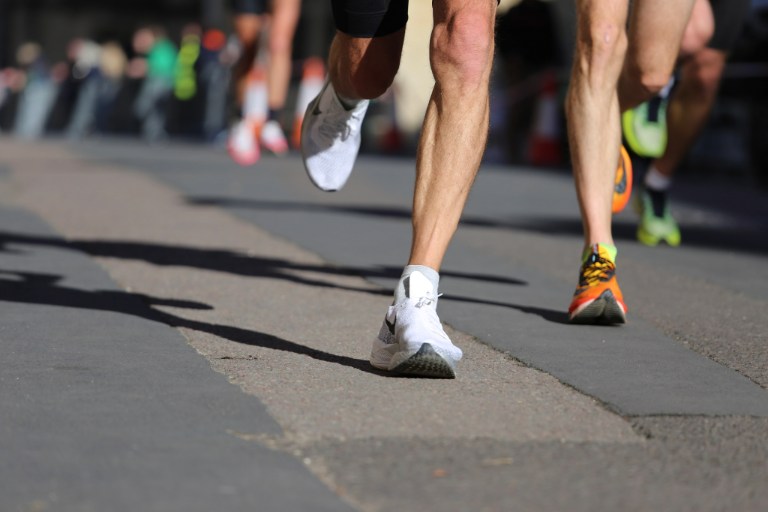How to Run a 27-minute 5K: The Ultimate Guide to Breaking 27 Minutes
Starting your running journey should feel exciting, not overwhelming. Our training plans give you the structure, support, and flexibility you need to go from your first step to running 5k, no matter your starting point.

Running a 5K in 27 minutes is a milestone many beginner-to-intermediate runners set their sights on. Hitting this time shows you’ve gone beyond casual jogging and built real consistency, endurance, and control over your pace. For a lot of people, it marks the transition from simply finishing races to actually racing with purpose and testing personal limits.
That said, getting to 27 minutes isn’t something that just happens by chance. It takes steady training, pacing discipline, and the confidence to hold your goal speed when the effort begins to feel tough. The good news? With the right plan, the right mindset, and a bit of patience, you can absolutely reach it — whether your target is a parkrun PB or your next local road race.
In this complete guide, you’ll find everything you need to make your 27-minute goal a reality:
- Exact target paces and splits so you know what to hit every kilometre.
- Fitness benchmarks to check if you’re ready to take it on.
- A proven training plan with the sessions you need to build speed and endurance.
- Race-day tactics to pace yourself smartly and finish strong.
- Expert tips and real success stories from coaches and runners who’ve reached the same milestone.
No more second-guessing. Just practical, proven advice to help you run your fastest 5K yet, while enjoying the process along the way.
Ready? Let’s go get that 27-minute 5K!
What Does It Take to Run a 27-minute 5K?

To run a 5K in 27 minutes, you need to hold a pace of about 8 minutes 41 seconds per mile, or 5 minutes 24 seconds per kilometre. That’s the target you need to lock into from the start and carry through consistently.
Put simply, you’ll need to cover each kilometre in just under 5 and a half minutes.
It may sound straightforward on paper, but once the pace starts to feel challenging, maintaining it takes more than just effort. You’ll need a mix of endurance, the confidence to settle into rhythm early, and the focus to keep pushing when your body wants to ease off.
Who is this goal realistic for?
If you’re currently finishing your 5Ks in the 28:00–29:30 range, you’re well within reach of hitting 27 minutes with structured training. At this stage, you’ve likely built enough fitness to run comfortably for the full distance, but now it’s about sharpening your pacing, improving efficiency, and adding workouts that make race pace feel manageable.
And if your PB is a little slower, don’t worry – steady progress and targeted training can move you closer than you think. With consistent practice, that 5:24 per kilometre pace will start to feel natural instead of intimidating.
Are You Ready for a 27-minute 5K?
Before you set your sights on a 27 minute 5K, it’s important to check if your current fitness is in the right range. Jumping into training too quickly can leave you tired, frustrated, or even injured. These simple benchmarks will help you see if you’re ready to train for a steady 5:24/km pace with confidence.
Benchmark Sessions
1. The 3 x 1K Repeats Test
Head to a track or flat road and run 3 x 1K repeats with 2–3 minutes of easy jogging or walking between efforts.
- Aim to hit each kilometre in about 5:20–5:25.
- If you can finish all three reps feeling fairly strong (and believe you could add another one), you’re probably ready to handle race pace on the big day.
2. The 1-Mile Time Trial
Another option is a 1-mile all-out effort.
- Warm up properly, then run one mile hard but under control.
- If you can run around 8:30–8:40 and still feel you could keep working with more training, that’s a good indicator you’re near 27-minute shape.
These checks are quick but effective ways to see whether you have the speed and endurance to chase your goal time, or whether you’d benefit from building a little more strength first.
Check Your Weekly Mileage Base
It takes more than intervals alone to hit your target. A solid aerobic base helps you recover faster, hold your form late in the race, and make the hard sessions count.
As a rule of thumb:
- You should be comfortable running 15–25 km (9–15 miles) per week for at least 4–6 weeks.
- If your current mileage is lower, spend some time building up gradually before adding too much speedwork.
Consistent weekly mileage, supported by strides or light pickups, will give you the foundation you need to train harder while staying injury-free.
Key Training Principles
To reach a 27-minute 5K, your training should mix endurance, speed, and smart pacing. It isn’t only about running faster each time you lace up – it’s about building the right foundation and layering in quality work. Here’s what to focus on each week:
1. Build Mileage Gradually
A steady aerobic base is essential for any 5K goal. It gives you the stamina to hold pace when things get tough and helps your body bounce back after harder sessions.
- Aim for 15–25 km (9–15 miles) per week if you’re at this level.
- Increase your mileage slowly (no more than 10% each week) to stay injury-free.
- Keep most runs easy and conversational. Save your energy for the quality workouts.

2. Include Intervals
Interval training is one of the best tools for improving 5K performance. It helps you feel comfortable running at race pace and conditions your body to deal with fatigue.
- Good options include 400m repeats, 800m repeats, or 1K reps run at or just faster than your goal pace.
- Always warm up first and take easy jog or walk recoveries between efforts.
- One focused interval session per week is enough for most runners.

3. Add Tempo Runs
Tempo runs help you learn to run strong at a steady effort for longer periods, improving your ability to hold pace.
- Run at about 85–90% of your maximum effort, or roughly 10–15 seconds slower per km than your 27-minute target pace.
- Start with 15–20 minutes at tempo pace after a proper warm-up.

4. Don’t Skip the Long Run
Even though a 5K is short, long runs are still very useful. They boost aerobic fitness, improve fuel efficiency, and strengthen your legs.
- Aim for 50–65 minutes at a relaxed pace.
- Think of it as time on your feet – speed doesn’t matter here.

5. Strength & Mobility Work
Strength training helps you maintain form, avoid injuries, and run more efficiently.
- Focus on glutes, core, and single-leg strength to support better mechanics.
- Add mobility work for hips, hamstrings, and calves so your stride stays smooth.
- 1–2 short sessions per week is enough. Even 15 minutes at home can make a big difference.

Pacing & Race-Day Strategy
As you step onto the start line, your plan matters just as much as your fitness - and the right pacing strategy can carry you all the way to a 27-minute breakthrough. Here's how to set it up:
1. Warm Up Properly
Getting your body moving before the race is key to hitting your target pace without feeling heavy.
- Easy Jog: Do 10–15 minutes of gentle jogging to raise your heart rate and loosen your muscles.
- Dynamic Stretches: Add drills like leg swings, lunges, or hip circles to prep the hips and legs.
- Strides: Finish with 4–5 short efforts slightly quicker than race pace (about 80–90% of max effort) to fire up your legs.
By the time you’re at the start line, you should feel ready, relaxed, and switched on.

2. Start Smart
Going out too fast is one of the easiest ways to blow your race.
- Stick to your goal pace: around 5:24 per km or 8:40 per mile.
- The first kilometre should feel smooth and under control, almost like you’re holding back.
If it feels a little too easy, that’s exactly where you want to be. The effort will build naturally as you progress.

3. Hold Your Nerve in the Middle
The middle part of the race can feel the hardest, when fatigue sets in and focus starts to slip.
- Keep your posture tall, shoulders loose, and stride light and quick.
- Concentrate on your rhythm and cadence – think efficient, not forced.
Lock onto a runner in front and aim to stay with them or gradually close the gap.

4. Nail the Final Kilometre
This is where you leave it all on the course. Remind yourself it’s just a few minutes of effort left.
- Find a marker about 400 metres from the finish – a bend, a sign, or a post.
- Once you hit it, push hard and give everything you’ve got left.
Keep your eyes forward, drive with your arms, and sprint through the line. Every second counts.

Mental Tips for Breaking 27

Running a 27-minute 5K is as much about mental strength as physical fitness. Your training will give you the legs to do it, but it’s your mindset that helps you stay strong when the effort feels tough. Here’s how to sharpen your mental game and stay focused from start to finish:
Break the Race into Chunks
Rather than thinking about the whole 5K at once, divide it into five manageable 1K sections, each with its own goal:
- 1K: Settle into your pace. Stay relaxed and let your rhythm come naturally.
- 2K: Hold steady. Keep things smooth and even.
- 3K: Stay focused. This is where you remind yourself to keep form tight.
- 4K: This is the test. Fatigue shows up here, but everyone feels it.
- 5K: All out. Push through and give everything until the line.
Breaking the distance into chunks keeps the race from feeling overwhelming.
Use Positive Mantras
Simple phrases can keep your head in the game when it gets tough. Try short, repeatable mantras in sync with your stride:
- “Relax and roll.”
- “Strong and smooth.”
- “One more step.”
These help block out negative thoughts and keep you driving forward.
Focus on Your Breath
When your body starts to tire, your breathing can keep you grounded. Aim for a steady rhythm: in for two steps, out for two. Staying calm and controlled with your breath helps you hold form and stops tension from creeping in.
Visualise Success
Before race day, take time during training to picture yourself running strong. Imagine hitting your splits, holding pace, and powering through the last kilometre. See the finish clock reading 27:xx as you cross. That mental picture can give you an extra boost of belief when you need it most.
Nutrition & Gear for a 27-minute 5K

Even for a 5K, what you eat and wear can affect how smoothly your race goes. The aim is to keep things simple and familiar so you can concentrate fully on running, not on stomach issues or uncomfortable gear.
The Night Before
Your preparation starts with dinner the evening before.
- Have a carbohydrate-based meal such as pasta, rice, or potatoes with a source of lean protein.
- Keep the portion moderate and balanced so you feel fuelled without being heavy.
- Stay well hydrated throughout the day, but avoid drinking excessive amounts right before bed.
Race Morning
A light breakfast will help you feel ready without weighing you down.
- Choose something you know agrees with you, like a banana, toast with a little honey, or a small bowl of cereal.
- Try to eat 2–3 hours before the start, then sip water steadily until the race.
- Avoid anything spicy, greasy, or new. Race morning is not the time for experiments.
Gear: Keep It Light and Familiar
Comfort and confidence matter more than anything else on race day.
- Select running shoes that feel light and responsive, but only ones you’ve already trained in.
- Stick with clothing and socks you’ve worn before. Even a small blister or bit of chafing can ruin your race.
- Check the weather ahead of time and dress accordingly. Layers are fine for your warm-up, but shed them before the start so you’re racing in your kit.
Frequently Asked Questions
Yes! For many recreational runners, finishing a 5K in 27 minutes is a strong result. It usually places you in the middle to upper half of local race fields and shows you’ve built solid fitness.
Is a 27-minute 5K good?
Yes! For many recreational runners, finishing a 5K in 27 minutes is a strong result. It usually places you in the middle to upper half of local race fields and shows you’ve built solid fitness.
How long does it take to train for a 27 minute 5K?
Most people can reach this goal within 6–12 weeks of consistent running if they’re already running around 29–30 minutes for 5K.
What pace is a 27-minute 5K?
About 8:40 per mile or 5:24 per kilometre. To hit 27 minutes, you’ll need to hold that rhythm from start to finish.
Do I need speedwork to run 27 minutes?
Yes, but it doesn’t have to be complicated. A weekly interval session or tempo run will help you get comfortable running faster than your goal pace.
Can beginners aim for a 27-minute 5K?
Absolutely. Many new runners progress to this level within their first year of consistent training. The key is to build up your endurance gradually before focusing on speed.

